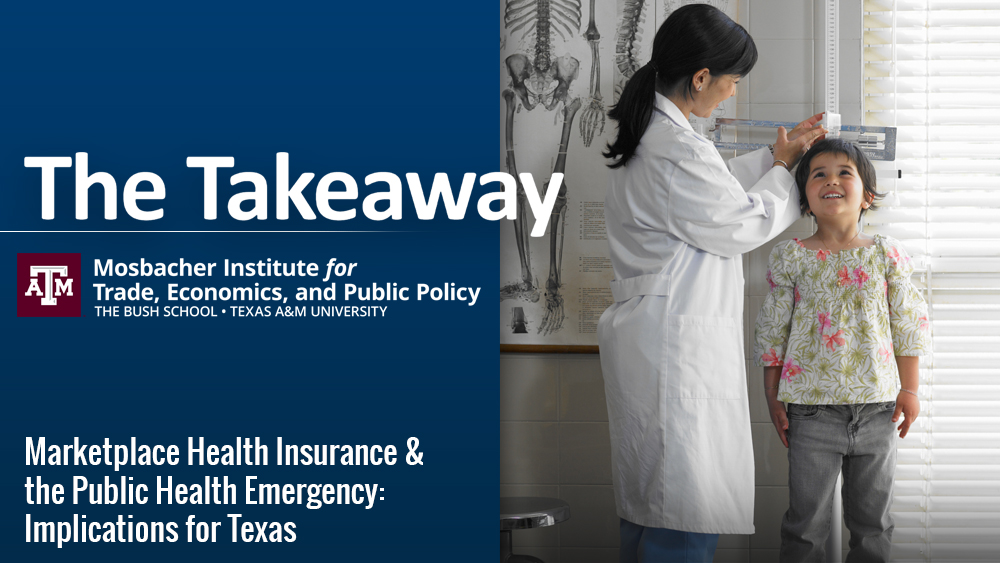
A Texas A&M study predicts the extent to which health insurance enrollment gains will be lost when COVID-19 related Marketplace subsidies and expanded eligibility criteria expire.
Texas has the highest uninsured rate in the nation, despite gains from temporary pandemic-era ACA Marketplace and Medicaid federal policies. Two Texas A&M faculty members, Benjamin Ukert from the School of Public Health and Laura Dague from the Bush School, have estimated the policy-related gains and expected losses in caseload in Texas when the policies expire.
The latest issue of The Takeaway, “Marketplace Health Insurance & the Public Health Emergency: Implications for Texas” describes what their research shows about the effect of the American Rescue Plan Act and its increased premium subsidies and expanded eligibility criteria for private Marketplace health insurance plans. The authors estimate that the policies led to a 70% increase in Texas Marketplace enrollment, representing 750,000 people. They also conclude, “unless additional steps to encourage health plan enrollment are taken, gains in insurance coverage will be lost when the enhanced subsidies end in 2025, leaving many more vulnerable Texans without health coverage.”
The December issue of The Takeaway, “Medicaid & the Public Health Emergency: Implications for Texas” drew conclusions from the same research, but with a focus on Medicaid, to explore the implications for Texas when the Families First Coronavirus Recovery Act provisions expire on April 1, 2023. The Episcopal Health Foundation, a philanthropic organization focused on improving community health in Texas, sponsored the underlying research for the authors’ report, What Happens to Texans’ Insurance Coverage When Medicaid and Marketplace Pandemic-Era Policies End?
The Takeaway is a publication of the Mosbacher Institute for Trade, Economics, and Public Policy at the Bush School of Government & Public Service at Texas A&M University.

